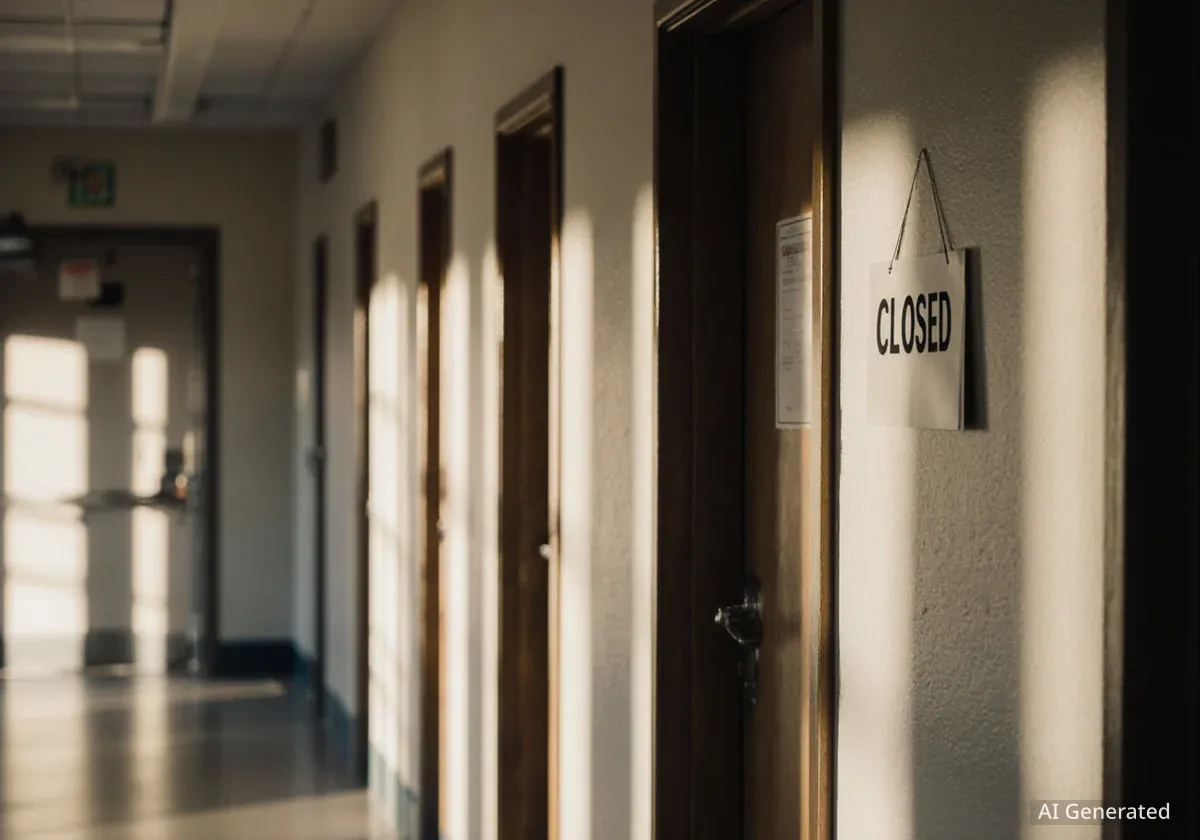The Louisiana State University Board of Supervisors is currently in a closed-door session and is expected to announce the university's next president today. The decision comes after a public comment period where several students voiced strong opposition to one of the three finalists, Wade Rousse, president of McNeese State University.
The board entered its executive session at approximately 10:15 a.m. to deliberate on the final candidates. The selection will fill the vacancy left by former president William Tate, who departed to lead Rutgers University in New Jersey.
Key Takeaways
- The LSU Board of Supervisors is set to announce the new university president today following a final meeting.
- The three finalists are Wade Rousse, James Dalton, and Robert Robbins.
- Students have publicly opposed the candidacy of Wade Rousse, citing his political connections to Louisiana Governor Jeff Landry.
- The board's decision will be followed by an official press conference later in the day.
The Final Candidates for LSU's Top Job
The search for a new leader to guide Louisiana's flagship university system has been narrowed to three experienced academic administrators. Each candidate brings a distinct background from different institutions, setting the stage for a significant decision by the Board of Supervisors.
Wade Rousse: The In-State Contender
Currently serving as the president of McNeese State University in Lake Charles, Louisiana, Wade Rousse is the only candidate from within the state. His leadership at McNeese has been noted, but his candidacy has become the focal point of controversy during the selection process.
James Dalton: A Provost from Alabama
James Dalton holds the position of provost at the University of Alabama. As the chief academic officer for a major Southeastern Conference peer institution, Dalton's experience in managing large-scale academic programs and faculty is a significant part of his profile. His background represents a more traditional path to a university presidency.
Robert Robbins: Former Head of a Major Research University
The third finalist is Robert Robbins, who previously served as the president of the University of Arizona. His tenure at a large, public research university provides him with direct experience in overseeing complex operations, including a major academic medical center, similar to LSU's structure. His departure from Arizona followed a period of financial challenges at the institution.
The Significance of the LSU Presidency
The president of Louisiana State University is one of the most influential public positions in the state. The role involves overseeing the flagship campus in Baton Rouge, which has over 37,000 students, as well as multiple other campuses, a law school, and a statewide health sciences center. The president is responsible for a multi-billion dollar budget and serves as a key figure in Louisiana's economic development, research, and higher education policy.
Student Voices Emerge in Opposition
During the public comment portion of the Board of Supervisors meeting, the proceedings took a contentious turn. A number of LSU students took the opportunity to express their disapproval of Wade Rousse's potential appointment. The primary concern articulated by the students is Rousse's perceived close political alignment with Louisiana Governor Jeff Landry.
Speakers argued that the university president must maintain independence from political influence to protect academic freedom and serve the best interests of the entire student body and faculty. The direct and organized nature of the student comments underscored a significant level of engagement and concern within the campus community about the direction of the university's leadership.
A Campus on Alert
The public comment period is a standard part of the board's procedure, but the focused opposition to a single candidate has drawn heightened attention to today's meeting. The outcome is now being watched not just for who is chosen, but for how the board responds to the articulated concerns of its students.
The Path to a Decision
The Board of Supervisors' retreat into an executive session marks the final phase of a months-long search process. This confidential meeting allows the members to freely deliberate on the strengths and weaknesses of each finalist without public scrutiny. The process is designed to facilitate a consensus before a formal vote is taken.
Following the conclusion of their private session, the board will reconvene in public to officially announce its choice. University officials have scheduled a press conference to take place approximately 90 minutes after the board meeting concludes. This event will provide the newly named president an opportunity to address the public and the media for the first time.
What Lies Ahead for LSU
The new president will inherit leadership of an institution at a critical juncture. They will be tasked with navigating the complex landscape of modern higher education, which includes challenges related to state funding, enrollment trends, and the political climate. The new leader will also be responsible for steering the university's strategic vision, from its athletic programs to its globally recognized research initiatives.
The concerns raised by students regarding political independence are likely to be a central theme in the early days of the new president's tenure, regardless of who is selected. Building trust and establishing a clear vision for an autonomous and thriving academic institution will be a top priority. The entire state of Louisiana will be watching to see how the new leader plans to guide its most important public university into the future.





